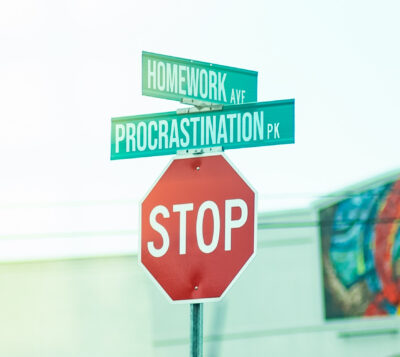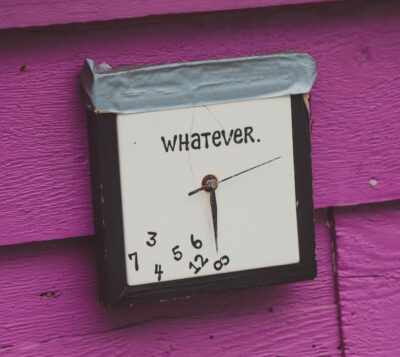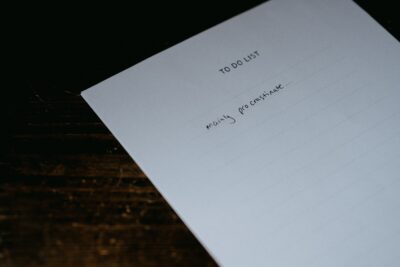I once came across the quote, “It feels good to watch a dog being a dog.” I don’t know who said it, but that sentiment resonates because I believe anyone who loves dogs is jealous of dogs.
It feels good to watch dogs being dogs because they spend almost all their time lying around. They only get up to either eat, play, visit the yard, give some love, or find their next place to circle, circle, circle and lie down.
No wonder we’re envious.
Dogs don’t have to make plans. They don’t need ambitions. They don’t think about what they need to do; they’re always in the moment, wagging their tails, sniffing around, looking for a treat, a pat on the head or a belly rub.
Not a bad existence. If only us humans could have such carefree lives.
Putting the pro in procrastinate
 Unfortunately, we can’t be like dogs because we can’t rely on other creatures to feed or shelter us. We have jobs to perform, errands to run, and a seemingly endless amount of stuff to take care of: do the dishes, do the laundry, reorganize the spice rack, mow the lawn, clean up the garage, and accomplish many other mundane and tedious but necessary tasks.
Unfortunately, we can’t be like dogs because we can’t rely on other creatures to feed or shelter us. We have jobs to perform, errands to run, and a seemingly endless amount of stuff to take care of: do the dishes, do the laundry, reorganize the spice rack, mow the lawn, clean up the garage, and accomplish many other mundane and tedious but necessary tasks.
At the same time, there’s always an overwhelming desire to put off those tasks: to take an afternoon nap, watch the game, scroll through the channels, read another chapter, or grab yet another handful of chips — to do anything but the thing we’re supposed to do. So at some point, we invented procrastination.
It feels good to do nothing
Procrastination is a complex psychological process with multiple phases. In phase one, we rationalize why it’s okay to delay, say, fixing the gutter that’s come loose. “Oh, it’s not urgent. I’ll get to it later today.” But ”later today” soon morphs into tomorrow or the weekend. Then all of a sudden, “next week” can transform to “after I get home from our 6-week vacation to Europe.”
In phase two, we do a pretty darn good job of convincing ourselves that, on second thought (or 33rd thought), that annoying sound the front door makes isn’t really all that annoying. Besides, we’re confident that sound will magically “go away.”
And in the final phase of procrastination, phase three, the negative feelings creep in. Guilt, shame, self-judgment. “I’m not as productive as I should be.” “I’m a loser.” We’re bothered by all the things we’ve put off or are putting off.
Phase three is vicious. You want to complete the task but can’t get yourself to get on it. Then at some point, you feel crappy about the whole situation.
This is no way to live.
Consider the past
 History is a series of ongoing liberation from unhealthy ideas: from superstition, from being ruled by kings and queens, from Swanson TV dinners. I declare that it’s now time to break the anxiety-inducing chains of procrastination.
History is a series of ongoing liberation from unhealthy ideas: from superstition, from being ruled by kings and queens, from Swanson TV dinners. I declare that it’s now time to break the anxiety-inducing chains of procrastination.
We should embrace procrastination. To a certain extent, at least. After all, procrastination is part of our nature as humans. Like dogs, we mainly want to lie around and be lazy — or at least be as unindustrious as much as possible. It’s in our DNA to put things off.
Consider when our species were primarily hunters and gatherers. Life was hard. We had to constantly search for food and fend off harsh weather. We were exhausted, so as much as we could, we’d sit around and stare at the sky and the stars in wonder and do a whole lot of thinking (read: a whole lot of nothing).
It’s not as if our ancestors had post-it notes placed all over their huts and caves with reminders to move a pile of rocks, build a canoe, or gather more straw. Cavemen didn’t even know of the concept of procrastination; in their primitive minds, they were simply resting.
Although they didn’t realize it, cavemen formulated the concept of “tomorrow” — that magical land where 99% of all human productivity, motivation and achievement is stored.
Give yourself a break
Benjamin Franklin nailed it when he said, “Don’t put off until tomorrow what you can do today.” It’s a simple yet powerful notion, and in many cases it’s the smart way to check items off your to-do list. The moment you think of it, do it.
Yet Silence Dogood’s idea, in practice, can be a bit overwhelming. Sometimes it’s perfectly okay to wait until tomorrow, or even next week or next month.
 I say this because people can get emotionally weighed down by tasks they’re supposed to do. And much of that feeling stems from the fact that we live in a society where “productivity” and “achievement” are constantly celebrated.
I say this because people can get emotionally weighed down by tasks they’re supposed to do. And much of that feeling stems from the fact that we live in a society where “productivity” and “achievement” are constantly celebrated.
Best-selling books, seminars, and magazine articles tell us how to get organized and create a system for overcoming procrastination. We read how successful people are those who are constantly busy: climbing the ladder at work, doing the family thing and completing home improvement projects on weekends, and earning graduate degrees at night.
By inference, if you’re unable to meet those lofty standards, well, then something must be terribly wrong with you, right?
People get depressed. We feel bad about ourselves. We wonder if our inability to complete projects in an acceptable amount of time is due to lack of skill or flat-out laziness. The whole thought process can justifiably drive you a little nuts.
Life would be a whole lot happier if we let go of the aspiration to knock out task after task, project after project, goal after goal.
Well, maybe not to completely let go. We need the right balance.
We can’t kick the can down the road
Yes, it’s not healthy to freak out over the fact that you still need to get an oil change 12,000 miles too late. But delaying what you can do today can be dangerous — financially, emotionally, and so on.
For example, our tendency to put off visits with our doctors can, and often does, come back to bite us in the keister. “I’m fine, nothing hurts.” Go ahead. Drag your feet and pay the price.
I’m certainly no maven of productivity, but I think procrastinators would feel much better if they focused less on the task itself and more on how much better they’ll feel upon completing the task.

It’s a matter of perspective. A minor amount of short-term suffering can reap the fruits of longer-term enjoyment and peace of mind.
Consider the task of calling your health insurance provider to finally resolve a billing issue. That’s about as exciting as being strapped to a chair and being forced to watch someone scratching a chalkboard. I get it.
So go ahead and just make the call. You won’t have to endure another morning of waking up and immediately feeling an avalanche of guilt for being a slacker. As a famous shoe company once proclaimed, just do it.
Of course, this advice isn’t original — you can find it in dozens of self-help books. Actually, the best motivation to kick your rear into gear may be the one-liner from Bill James: “Nothing is so fatiguing as the eternal hanging on of an uncompleted task.”
If that doesn’t inspire you, remember that getting stuff done just plain feels good, especially for husbands. A special warmth washes over you when providing a list of accomplishments to your wife since it’s likely that a high percentage of the things on that list took weeks or months to complete. Yes, we sure as heck like to get credit for (finally) knocking them out.
Accept yourself
 I don’t want you to get the wrong idea. Despite my advice, I’m as guilty as anyone of letting projects linger for way too long. Ask my better half.
I don’t want you to get the wrong idea. Despite my advice, I’m as guilty as anyone of letting projects linger for way too long. Ask my better half.
Heck, it can get so bad that I even put off procrastinating. Sometimes I put off multiple things at once, which I reckon makes me a multi-tasking procrastinator.
I have even rationalized that if I put off a task, it will be done better because I will be older — and therefore wiser and more competent — when I get around to it.
Before retiring, I delayed jumping on work-related tasks I didn’t enjoy. Well, maybe I didn’t put them off per se, but I prioritized tasks by putting the ones I was good at or most enjoyed at the top of the to-do list. It’s a model I continue to follow, doing stuff I like (or at least can tolerate) in a timelier manner than the mundane stuff. The rest? Due tomorrow? Do tomorrow!
Yard and house chores I too often let sit. Same goes for vacuuming three dogs’ worth of hair.
Like a lot of folks, it’s hard for me to get back into the gym after a vacation. But my pathetic “tomorrow” logic includes reasoning that I can’t possibly get back into the gym until I start eating right again, which I also put off. It makes for an interesting procrastination chicken/egg paradox.
I’ve procrastinated enough to be aware of the underlying psychology. When I feel anxiety about an activity, I’ll automatically postpone it; that’s a primitive survival mechanism kicking in.
But inevitably, the drop-dead deadline beckons and you must act. And sometimes waiting for the two-minute warning is what you really need to get off your butt and get to it.
Crunch time is an excellent motivator
 I seemingly always shop for holiday or special-occasion gifts at the last minute. Which, when you think about it, deserves its own category of procrastination. It’s insanity, really.
I seemingly always shop for holiday or special-occasion gifts at the last minute. Which, when you think about it, deserves its own category of procrastination. It’s insanity, really.
For example, every Christmas season, I know I’ll get stressed and frazzled if I have to get online or rush out for gifts a week out from Christmas (even on the afternoon of 12/23). Yet I still subjugate myself to the aggravating process year after year.
Then again, I’m perfectly fine with it. I’ve grudgingly accepted that’s how I prefer to go shopping. No one gets hurt, no one gets arrested. As long as I do a solid job with choices and the gift-wrapping for my wife’s presents, all is good in the world.
In fact, I think my procrastination has actually made me a better shopper. Procrastination enhances my focus, helping me think deeper about the pros and cons of specific gift options.
The stoic philosopher Marcus Aurelius put it best: “The impediment to action advances action. What stands in the way becomes the way.”
In my case, the impediment is procrastination. See, procrastinating can be a pretty good thing! That is, if you know what you’re doing.


